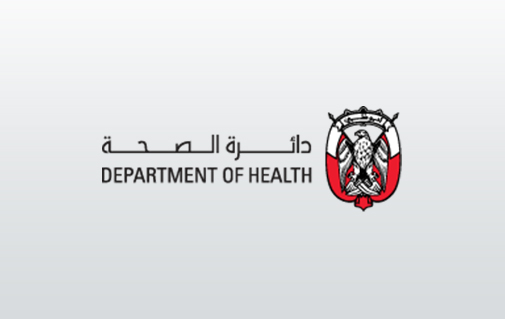News
HAAD Urges Pilgrims to take Necessary Vaccines at Least Two Weeks Prior to Travelling

25 Aug, 2015: Abu Dhabi, August 25, 2015: The Health Authority - Abu Dhabi (HAAD), the regulatory body of the healthcare sector in the Emirate of Abu Dhabi, is advising Hajj pilgrims to go directly to healthcare facilities to take the necessary Hajj vaccines. HAAD is emphasizing the importance of taking the vaccines at least two weeks prior to travelling to provide one with enough time to build maximum strength and immunity.
The Hajj Vaccines for this year include Meningococcal, Seasonal Influenza and Pneumococcal vaccines. In addition, all pilgrims will be given a stamped vaccination certificate that should be presented upon entering the Kingdom of Saudi Arabia (KSA) to fulfil entry requirements.
This call for action comes as part of the campaign launched by HAAD under the theme “Protect Your Health with Vaccination” which aims to increase awareness on the importance of vaccinations that can prevent several infectious diseases. In addition to the Hajj shots, the vaccination program includes immunization for infants, school age children, adults at high risk and travelers.
Dr Omniyat Al Hajeri, Director of Public Health & Research Division at HAAD, said: “Wellness, prevention, and protecting the community against diseases is one of our strategic priorities at HAAD. The aim of the Hajj vaccines is to protect individuals and their families from infectious diseases and reduce the risk of spreading these diseases in the community.”
The Meningococcal Vaccine is mandatory as per Saudi Arabian law to protect against meningitis, and a valid vaccination certificate is required to be presented before entering Saudi Arabia. There are two types of this vaccine, in which the first one is given to people aged between nine months to 55 years, with another dose given five years after from the first dose. The other vaccine is given to people aged above 55 years, with another dose given three years after the original dose.
The seasonal Influenza Vaccine is highly recommended to protect against the common cold viruses. While the Pneumococcal Vaccine is recommended to protect against pneumococcal diseases. It is recommended to be taken by adults aged 65 years and above, and younger adults with specific health conditions or chronic diseases such as diabetes, heart diseases, lung diseases (including asthma), liver diseases, kidney diseases, sickle cell disease, people who have cochlear implants, individuals who have a damaged or removed spleen and who have a weak immune system.
Dr. Farida Al Hosani, Manager of the Communicable Disease Department at HAAD urges pilgrims older than 65 years old, children under 12 years old, pregnant women people with cancer or terminal illnesses, and those with chronic diseases (such as heart disease, kidney disease, diabetics, or respiratory disease) to visit the doctor at least 1 month prior to their travel. The doctor will advise them if there are any potential health risks and provide guidance on the mandatory and/or recommended vaccinations.
Al Hosani said: “In addition to the vaccine prior to travelling, pilgrims should adopt day-to-day precautions throughout their stay at Makkah to keep their immunity strong and prevent any illness. These include washing their hands thoroughly with soap and water or other disinfectants - especially after coughing or sneezing, eating healthy food, and drinking plenty of fluids to stay hydrated. People with low immunity should wear masks in crowded places to minimize the risk of catching a respiratory infection and we also advise that they carry a first aid kit with them at all times.”
After returning from Hajj, pilgrims should take enough rest and drink plenty of fluids; if they develop severe fever or cough then they should seek immediate medical attention and avoid contact with others.
The Hajj vaccines are available for UAE citizens and residents, free of charge, across 45 healthcare facilities across the Emirate of Abu Dhabi. To view the list of healthcare facilities providing the Hajj vaccinations, visit: http://www.haad.ae/HAAD/tabid/1198/Default.aspx or call 800 555.



 For an optimal experience please
For an optimal experience please